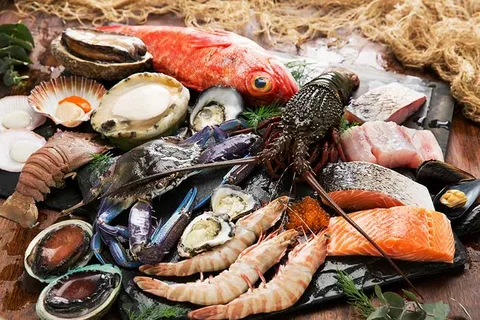In a world where our daily choices impact the environment, the food on our plates plays a significant role. Seafood, a delicacy enjoyed by many, also poses a challenge concerning sustainable sourcing. This is where Certified Seafood Services step in, creating a bridge between conscientious consumers and a healthier ocean.
Understanding the Certification Process
Certified Seafood Services operate on a foundation built upon rigorous standards and practices that promote sustainable and responsible fishing. But what does it mean for seafood to be certified?
Certification involves a thorough evaluation of fishing practices, environmental impact, and social responsibility within the seafood industry. Independent organizations, such as the Marine Stewardship Council (MSC) and the Aquaculture Stewardship Council (ASC), set these standards. Their certification ensures that the seafood you consume has been harvested or farmed in a way that considers the long-term health of the oceans.
Traceability: A Key Pillar of Certification
One of the essential aspects of Certified Seafood Services is traceability. Imagine knowing exactly where your fish comes from, just like tracing the origins of a fine wine. This is precisely what these services offer. Through a meticulous tracking process, consumers can be confident that the fish on their plate was sourced sustainably.
By providing information on the origin of the seafood, Certified Seafood empowers consumers to make informed choices. This transparency not only builds trust but also encourages responsible practices within the fishing industry.
Promoting Biodiversity and Ecosystem Health
Certification standards are designed to protect not only the target species but also the broader marine ecosystem. Overfishing, a critical concern for ocean health, can lead to imbalances in marine populations, disrupting the delicate harmony of underwater life. Certified Seafood Services work to prevent this by setting catch limits and promoting sustainable fishing practices.
In essence, when you choose certified seafood, you contribute to the conservation of marine biodiversity, allowing fish populations to thrive and maintain the ecological balance of our oceans.
Reducing Bycatch and Habitat Impact
Bycatch, the unintentional capture of non-target species during fishing, is a significant threat to many marine animals. Certified Seafood implements measures to minimize bycatch, employing selective fishing gear and techniques that reduce the impact on non-target species.
Furthermore, these services also address the potential damage to habitats caused by certain fishing methods. Destructive practices like bottom trawling can harm the seafloor and its inhabitants. Certification standards advocate for alternatives that are less harmful, ensuring that the ocean floor remains a thriving environment.
Social Responsibility in the Seafood Industry
Certification doesn’t only focus on environmental aspects but extends to social responsibility within the seafood industry. Certified Seafood Services evaluate the working conditions of those involved in fishing and aquaculture, ensuring fair labor practices.
From the fishermen at sea to the workers in processing plants, everyone along the seafood supply chain deserves fair treatment. Certified seafood is a testament to ethical practices, reflecting a commitment to the well-being of both ocean ecosystems and the people who depend on them.
Consumer Empowerment for Sustainable Choices
Certified Seafood plays a crucial role in empowering consumers to make choices aligned with their values. As consumers become more environmentally conscious, they seek ways to contribute positively to the planet through their daily decisions, including what they eat.
By choosing certified seafood, consumers send a powerful message to the industry. They demand sustainable practices, which, in turn, encourages more fisheries and aquaculture operations to adopt responsible methods.
The Economic Impact of Certification
While some may argue that sustainable practices can be economically challenging, Certified Seafood Services proves otherwise. Certification can enhance the market value of seafood products by appealing to environmentally conscious consumers. As demand for certified seafood grows, it creates a market incentive for more businesses to adopt sustainable practices.
This shift towards sustainability not only benefits the environment but also contributes to the long-term economic viability of the seafood industry. It ensures that future generations can continue to enjoy the fruits of the sea without compromising the health of our oceans.
Challenges and Future Directions
While Certified Seafood Services have made significant strides in promoting ocean-friendly dining, challenges persist. Illegal, unreported, and unregulated (IUU) fishing remains a global issue, requiring continued efforts to combat it. Additionally, the need for broader adoption of certification practices across the industry is crucial for sustained impact.
Looking forward, advancements in technology, such as blockchain, hold promise for enhancing traceability and transparency in the seafood supply chain. These innovations can further strengthen the effectiveness of Certified Seafood, offering consumers even greater confidence in their choices.
Conclusion
In a world where our actions ripple through the delicate fabric of the environment, the choices we make about what we put on our plates matter. Certified Seafood Services provide a beacon of hope for ocean-friendly dining, offering a pathway to sustainable and responsible choices.
Through rigorous standards, traceability, and a commitment to social responsibility, these services ensure that the seafood on our tables reflects a harmonious relationship between human consumption and the health of our oceans. By choosing certified seafood, we not only savor the flavors of the sea but also contribute to a future where the oceans thrive, and marine life flourishes for generations to come.
More Read: Swimming With Whale Sharks






